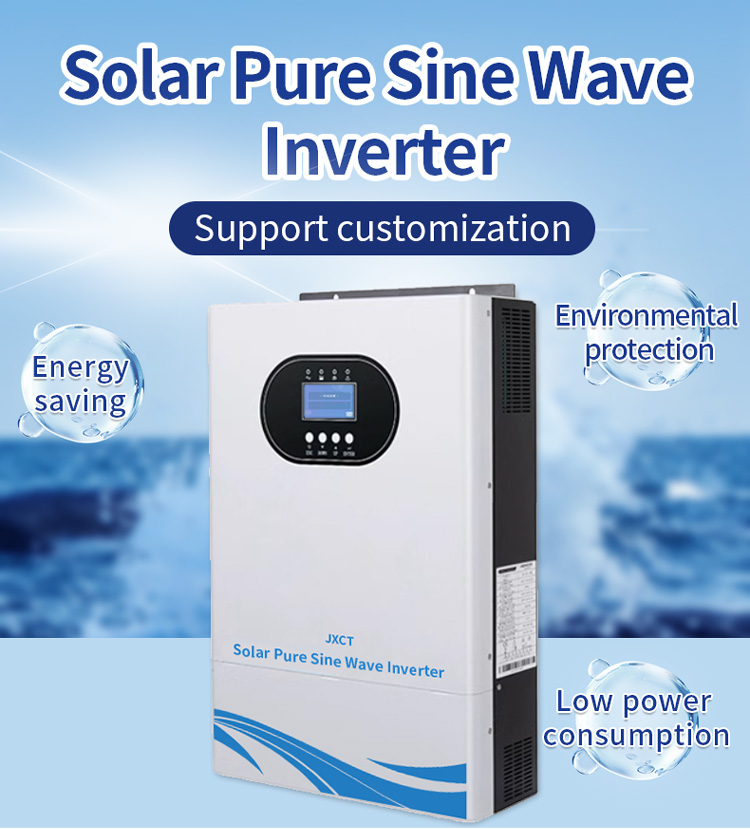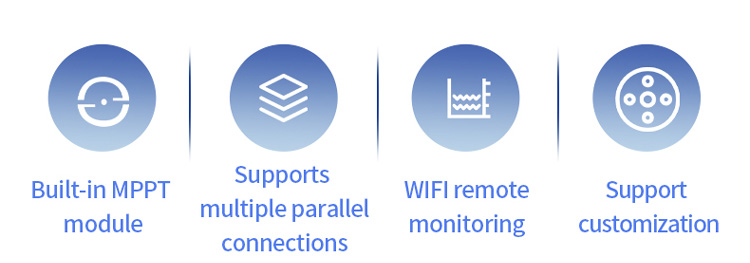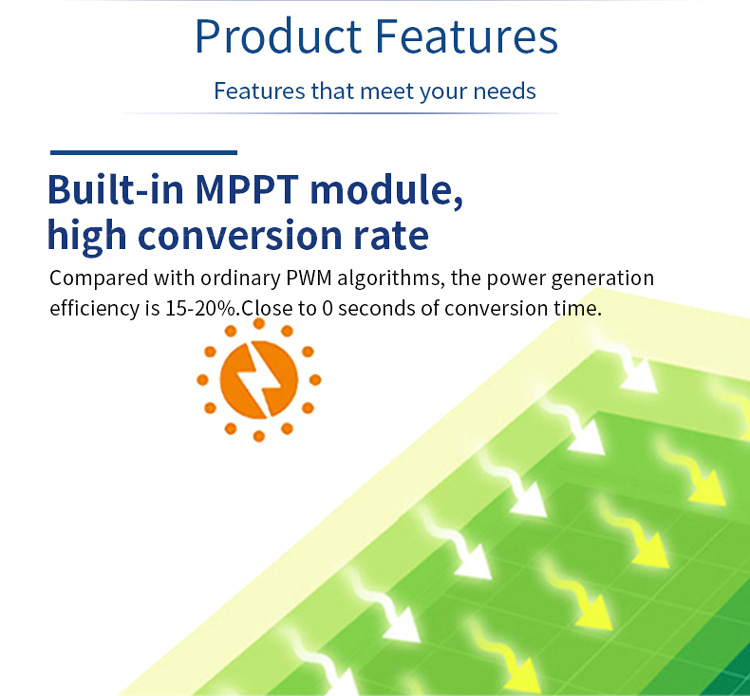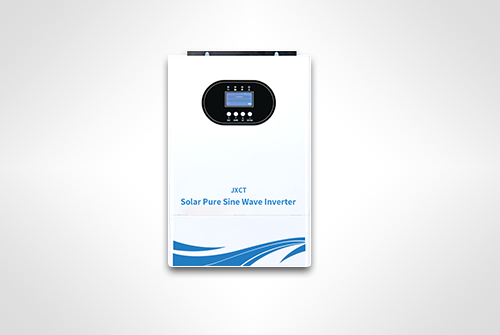A Hybrid Inverter is a key component that integrates multiple power sources to maximize energy efficiency.
This device manages solar, battery, and grid power to ensure efficient and reliable supply for residential and commercial use.


Here are the key features that distinguish hybrid inverters:
1. Integrated Multimode Operation
This is its core capability. A single hybrid inverter device typically combines:
- A Solar Inverter (DC-AC): Converts PV DC power to AC.
- A Battery Inverter/Charger (AC-DC and DC-AC): A bidirectional converter that charges the battery (AC to DC) and inverts battery power for use (DC to AC).
- A Grid-Tie Inverter: Synchronizes with the utility grid for exporting excess power.
- An Off-Grid Inverter: Can independently generate a stable AC waveform to power essential loads when the grid is down.
This integration eliminates the need for separate, discrete components, streamlining installation and improving overall system efficiency and communication.
2. Seamless and Automatic Transfer Switching
A critical feature for backup power. During a grid outage, a high-quality hybrid inverter can detect the failure and automatically disconnect from the grid (islanding) and switch to off-grid mode within milliseconds (typically <20ms).
This ensures a uninterruptible power supply (UPS) for critical loads, powered by the battery and/or solar panels, without any manual intervention.
3. Advanced Energy Management and Smart Logic
The intelligence of a hybrid inverter is embodied in its programmable operating modes, which prioritize energy sources based on settings, electricity tariffs, and consumption patterns:
- Self-Consumption Optimization: Primarily uses solar energy to power home loads, charges the battery with surplus, and only draws from the grid when necessary.
- Time-of-Use (TOU) Management: Charges the battery with solar or cheap off-peak grid power and discharges it during expensive peak-rate hours, maximizing bill savings.
- Backup-Priority Mode: Reserves a portion of the battery capacity specifically for outages, ensuring backup availability.
- Grid Support/Zero Export Mode: Can limit the amount of solar power fed back to the grid, which is useful where grid export is restricted or not compensated.
4. Enhanced System Monitoring and Connectivity
Modern hybrid inverters come with integrated Wi-Fi, 4G, or Ethernet connectivity.
They pair with dedicated monitoring platforms and mobile apps, providing users with real-time and historical data on energy production, consumption, battery state of charge, and system health.
This allows for remote management, performance analysis, and firmware updates.
5. Future-Proofing and Scalability
Many hybrid invertors are designed to be modular and scalable. They often allow for the easy addition of more battery capacity or increased solar input later on.
Their software-upgradable nature means new features and compliance with future grid codes can sometimes be added remotely.

Smart Management and Future-Proofing
Modern Hybrid Inverters are equipped with advanced features such as remote monitoring and smart energy management systems. These capabilities allow users to track energy production and consumption in real-time, optimize battery usage, and even participate in demand-response programs.
Their inherent flexibility also makes them future-proof, capable of adapting to evolving energy landscapes and potential future grid services.
Investing in a Hybrid Inverter is an investment in both your current power needs and a sustainable, resilient future.
